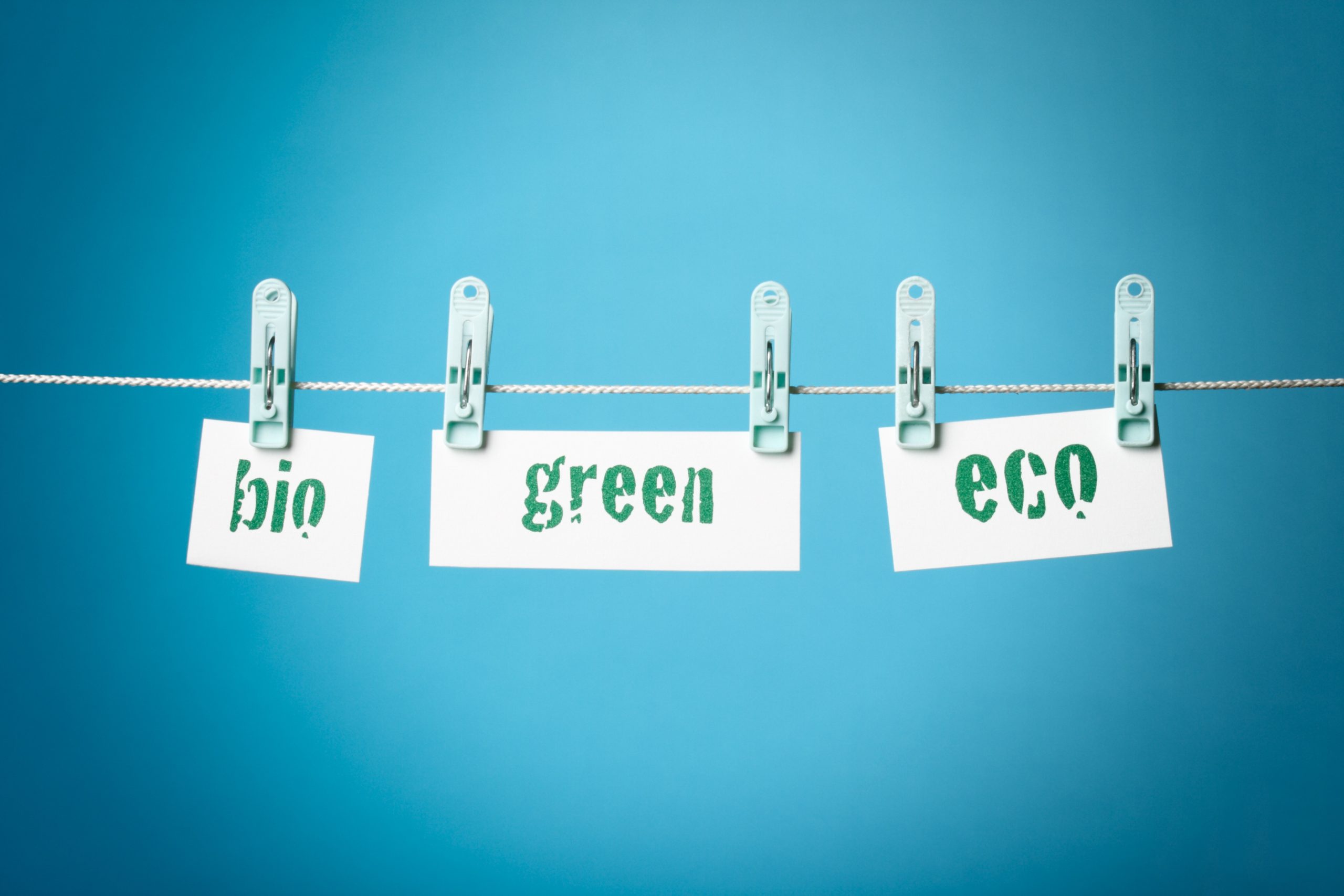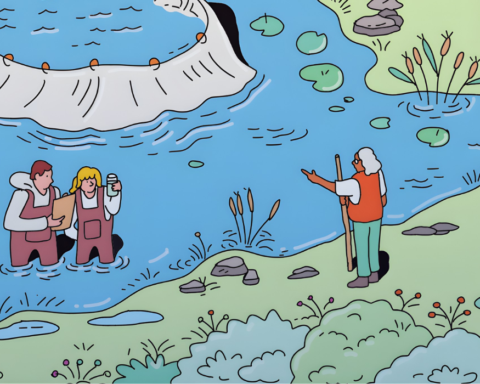After years of outrage expressed by environmental groups, and a trail of bureaucratic complaints, it took two paragraphs buried in a sweeping piece of government legislation for an oil-sands lobby to scrub its website clean. That pre-emptive action is proof of that which activists in Canada say has long been in plain sight: greenwashing is rampant in the fourth-largest petroleum-producing country in the world – but will new legislative ammo effectively tackle it?
The terms are contained in Bill C-59, which received royal assent last week and includes several changes relevant to companies doing business in Canada. Among them are amendments to the Competition Act that intend to address unsubstantiated environmental claims.
The bill prohibits a public “statement, warranty or guarantee of a product’s benefits for protecting or restoring the environment or mitigating the environmental, social and ecological causes or effects of climate change” if the claims are not based on “an adequate and proper test.” It also demands that the claims be in accordance “with internationally recognized methodology.” In both cases, the onus is on the person making the claims to provide the relevant proof. In addition, consumers will now be able to take their complaints directly to the Competition Tribunal. Those found to be in violation could be slapped with penalties up to $15 million and 3% of a corporation’s annual worldwide gross revenues.
A coalition of environmental and health organizations celebrated the bill, describing it as “a potential watershed moment” in dealing with the “systemic problem” of making spurious environmental claims. “False green claims, or greenwashing, not only deceive consumers but also contribute to pollution and environmental degradation, with serious implications for human health,” said Leah Temper, with the Canadian Association of Physicians for the Environment (CAPE), an organization that has been pushing to ban fossil fuel advertising altogether in Canada. In addition, “it skews the competitive landscape, impairs sustainable consumption decisions, harms consumer trust and undermines companies’ incentives to invest in green innovation,” noted Tanya Jemec, a lawyer at Ecojustice.
While most of the attention has been focused on oil and gas companies, the regulations in Bill C-59 are not specific to any one industry, suggesting that new scrutiny could now be applied to popular terms such as “net-zero,” “carbon-neutral” and “sustainable.”
For the Pathways Alliance, a coalition of six of the largest oil and gas producers in the country – and currently under investigation by the Competition Bureau for its environmental claims – the new rules create “significant uncertainty” for companies trying to communicate how they are trying to improve their environmental performance. As a result, it erased all content from its website, social media and other public communications. Other oil and gas companies have removed information from their websites or added disclaimers.
“This is a direct consequence of the new legislation and is not related to our belief in the truth and accuracy of our environmental communications,” Pathways Alliance said on its website.
The province of Alberta also chimed in with outrage, issuing a statement calling the legislation “absurd authoritarian censorship” that will serve only “to stifle the many billions in investments in emissions reducing technologies” and block the ability of Canadians to “hear the truth about the energy industry.” It said it was considering mounting a constitutional challenge or the use of the Alberta Sovereignty within a United Canada Act to “protect free speech.” In the days leading up to the bill’s royal assent, the province shut down its controversial Canadian Energy Centre, also known as its “energy war room,” a publicly-funded provincial corporation that had been created to defend the energy sector.
Law firms such as BD&P raised concerns about “the uncertainty and ambiguity” of the wording in the bill, but some advocates point to the fact that details will be fleshed out in guidance expected to be issued by the Competition Bureau to help companies know when they’re crossing a line. Environmental organizations say the legislation itself is already proving effective.
“The fact that Pathways Alliance has taken such drastic action shows that they know they don’t have evidence to support the story they’re selling on carbon capture, and that its member companies’ business plans don’t align with a net-zero future,” Emilia Belliveau, energy transition program manager for Environmental Defence, said in a statement.
The Pathways Alliance is behind a massive venture to build a carbon capture and storage (CCS) project that it says would help its member companies cut greenhouse gas emissions by 32% from 2019 levels by 2030 – an unproven technology that climate advocates say will simply give Canadian fossil fuel companies licence to keep drilling. The project involves building a 400-kilometre pipeline that would transport carbon dioxide from oil-sands facilities in northern Alberta to an underground storage chamber. A recent report from U.K. think tank InfluenceMap notes how, through Pathways, companies are branding themselves as “climate conscious entities” that publicly promote technologies like carbon capture storage “as a cover to weaken and block climate policy.”
InfluenceMap research shows that while Pathways presents “optimistic messaging” related to CCS publicly, correspondence with policy-makers suggests “a notable lack of confidence in CCS technology to achieve climate goals.” The Pathways Alliance is already under investigation by the Competition Bureau for its “Let’s clear the air” advertising campaign, which Greenpeace has alleged makes false and misleading claims about reducing emissions and helping Canada achieve its climate targets.
Ecojustice, CAPE, Équiterre, and the Quebec Environmental Law Centre called on François-Philippe Champagne, the federal minister of innovation, science and industry, to explicitly prohibit vague and hard-to-prove terms such as “green,” “eco-friendly” and “climate-neutral” through new regulations under the Competition Act. And they urged the Competition Bureau to hold public consultations before releasing finalized guidelines that will identify the standards that businesses are expected to meet. The European Union, for example, prohibits generic environmental terms such as “eco-friendly” and “biodegradable” and insists companies include clear specifications in prominent language on the same packaging, label or website.
“While the passage of Bill C-59 is a significant step towards clamping down on rampant greenwashing in Canada, gaps remain that will make it challenging to hold companies to account,” said Jemec, with Ecojustice, in a statement. That includes the kind of proof that companies will have to give to the public about their claims. While the Competition Tribunal might compel companies subject to complaints to provide this information during litigation, it might not be disclosed publicly, Jemec said
“And more importantly, what is still missing is transparency outside of litigation in the places where consumers are being bombarded with green claims,” she says. “This means that consumers – as well as competitors and regulators – are unable to easily verify the credibility of a company’s green claims at the time that they have to make decisions based on those claims, e.g. the point of purchase.”
France requires companies making environmental claims to disclose information about their claims in a format that is easily accessible at the time of purchase, for example with a QR code.
“Businesses that want the benefits of making a green claim should be willing and able to provide supporting information to the public upfront,” she said, “not just when challenged.”







